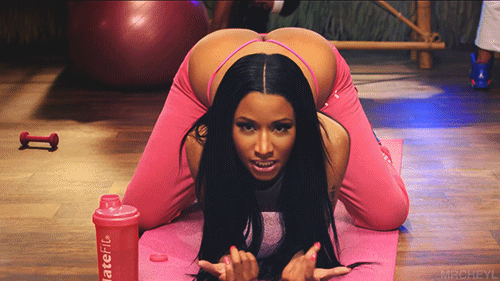Nicki Minaj is not just a big butt rapping about the luxuries of a millionaire lifestyle. In fact, consolidating her work into such a one-dimensional statement is not only false, but an act of violence against black artists as their art is misconstrued and adopted for profit by others. But such misconceptions have not kept Minaj down for long, as her latest LP The Pinkprint defies the cultural appropriation permeating society.
But one cannot understand the mastery of Minaj’s latest release without analyzing all that came before it. Rap and hip-hop were founded by black Americans to express their cultural grievances, notably the struggles of living in low socioeconomic conditions and other experiences based on race. For female rappers like early greats Missy Elliott and Lil’ Kim, the themes also include sexuality and empowering black women in a patriarchal system. It is almost impossible to estimate the total influence and importance of this genre to the black community, but it is becoming more and more easy to quantify how it is manipulated and appropriated by white society.
White rappers are not necessarily bad for the predominantly black context and purpose of the genre. For example Eminem, having faced the impoverished streets of Detroit, Michigan, and possessing clear musical talent, has found a home in rap’s zeitgeist. More recently Run the Jewels, an interracial rapping duo, inherently defies the racial dichotomy of hip-hop. However, not all artists are innovating, creating and in turn properly acknowledging the origins of their genre.
This misappropriation has reached alarming frequency within female artists as well. Miley Cyrus, Meghan Trainor and of course Iggy Azalea have made millions glorifying big booties, “ghetto chic” hair and dress, and vanilla pop-rap that taints the genre. Azalea has received massive backlash from rapper Azealia Banks for her poseur brand concocted from that of genuine efforts by other black artists, which has been widely chronicled on Twitter and more thoroughly in an interview with New York’s Hot 97. In the latter, Banks denounces the Grammys and society for promoting the likes of “‘Igloo Australia.”
“That Iggy Azalea shit is not better than any fucking black girl that’s rapping today,” Banks said in the interview with New York’s Hot 97. “And when they give those rewards out — ‘cause the Grammys are supposed to be accolades for artistic excellence — Iggy Azalea is not excellent.”
https://twitter.com/azealiabanks/status/540299044464369664
Nicki Minaj’s theatrical outfits, provocative music videos and, of course, beat-ridden tracks have been subjected to this misappropriation as much as the next black artist. But The Pinkprint is a triumphant album which refuses to bow down to anyone, whether it be the haters, thieves in her industry or any male colleague.
When she released the single “Anaconda,” followed by an instantly viral music video featuring greased asses in a steaming jungle, it became clear Minaj was not afraid to show off the big butts and dance moves recycled by white artists and used to overtly sexualize black women in the media. “Anaconda,” rather, celebrates these features, pairing the sultry imagery with empowering lyrics regarding her “boy toy named Troy” and a beat that just begs you to do a jello shot.
Another single “Only” achieved a similar effect, Minaj raps her own praises and self-assured sexuality, the verses dropped by Drake and Lil Wayne reaffirm these statements. The simplistic, melodic beats prevalent in this track and throughout The Pinkprint, produced brilliantly by Bryan “Birdman” Williams and Dwayne “The President” Carter, diverge from the dance-pop of the “Super Bass” era. In doing so, Minaj creates a matured sound to coincide with a newfound cultural consciousness.
A major foundation of this cultural consciousness is the feminist ideals expressed in her work. As aforementioned, female rappers suffer from appropriation that not only steals their work but also their bodies, commercializing the “black look” and making it a sexual commodity. Minaj works to combat this with tracks like “Get On Your Knees,” flipping the subordinate blowjob imagery into a symbol for a woman getting her sexual dues. Ariana Grande coos during the chorus, “You gotta beg for it, beg for it / I wanna see you lookin’ up.”
“Want Some More,” definitely one of the album’s best bangers, proclaims both her sexual and professional prowess, “Alexander, made me Queen / I’m pulling up with the King, I’m late to my own party, bitch / Want it, I get it, I don’t be wanting for nothing / I mean, I do what I do and it must be counting for something.” However, the pinnacle of this feminist revolution may be “Feeling Myself,” a track celebrating female masturbation with one and only Beyonce.
The Pinkprint is a beacon of hope in the media procession of cultural appropriators. Not only is a great album for its beats and melodies, but also for unapologetic, poignant lyrical themes. In this way, Minaj truly follows her own advice, “For all the women, stop feeling like you shouldn’t speak your mind cause somebody’s going to call you a bitch. Speak your motherfucking mind.”
4.3/5


